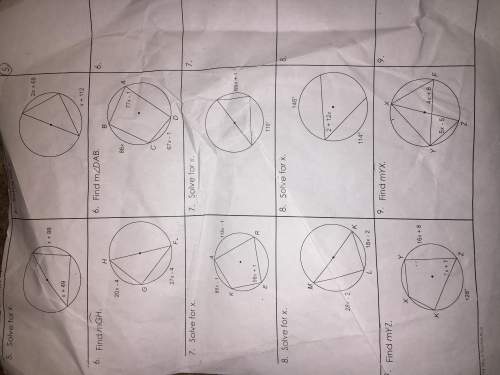
Mathematics, 02.03.2020 16:38 khohenfeld0
Consider the function defined over three binary variables: f(x1,x2,x3)=(¬x1∧¬x2∧¬x3) . We aim to find a θ such that, for any x=[x1,x2,x3] , where xi∈{0,1} : θ⋅x+θ0>0 when f(x1,x2,x3)=1, and θ⋅x+θ0<0 when f(x1,x2,x3)=0. If θ0=0 (no offset), would it be possible to learn such a θ ?

Answers: 1


Another question on Mathematics

Mathematics, 21.06.2019 16:00
Let the closed interval [a , b] be the domain of function f. the domain of f(x - 3) is given by (a) the open interval (a , b) (b) the closed interval [a , b] (c) the closed interval [a - 3 , b - 3] (d) the closed interval [a + 3 , b + 3]
Answers: 2


Mathematics, 22.06.2019 00:30
Two corresponding sides of two similar triangles are 3cm and 5cm. the area of the first triangle is 12cm2. what is the area of the second triangle?
Answers: 2

Mathematics, 22.06.2019 02:30
Build is 120 wide 20 feet high 48 feet long how many cubic feet and the volume
Answers: 1
You know the right answer?
Consider the function defined over three binary variables: f(x1,x2,x3)=(¬x1∧¬x2∧¬x3) . We aim to fin...
Questions


Mathematics, 15.11.2019 02:31



Mathematics, 15.11.2019 02:31



Social Studies, 15.11.2019 02:31

Computers and Technology, 15.11.2019 02:31

Mathematics, 15.11.2019 02:31

Health, 15.11.2019 02:31



Mathematics, 15.11.2019 02:31



Health, 15.11.2019 02:31


Health, 15.11.2019 02:31





